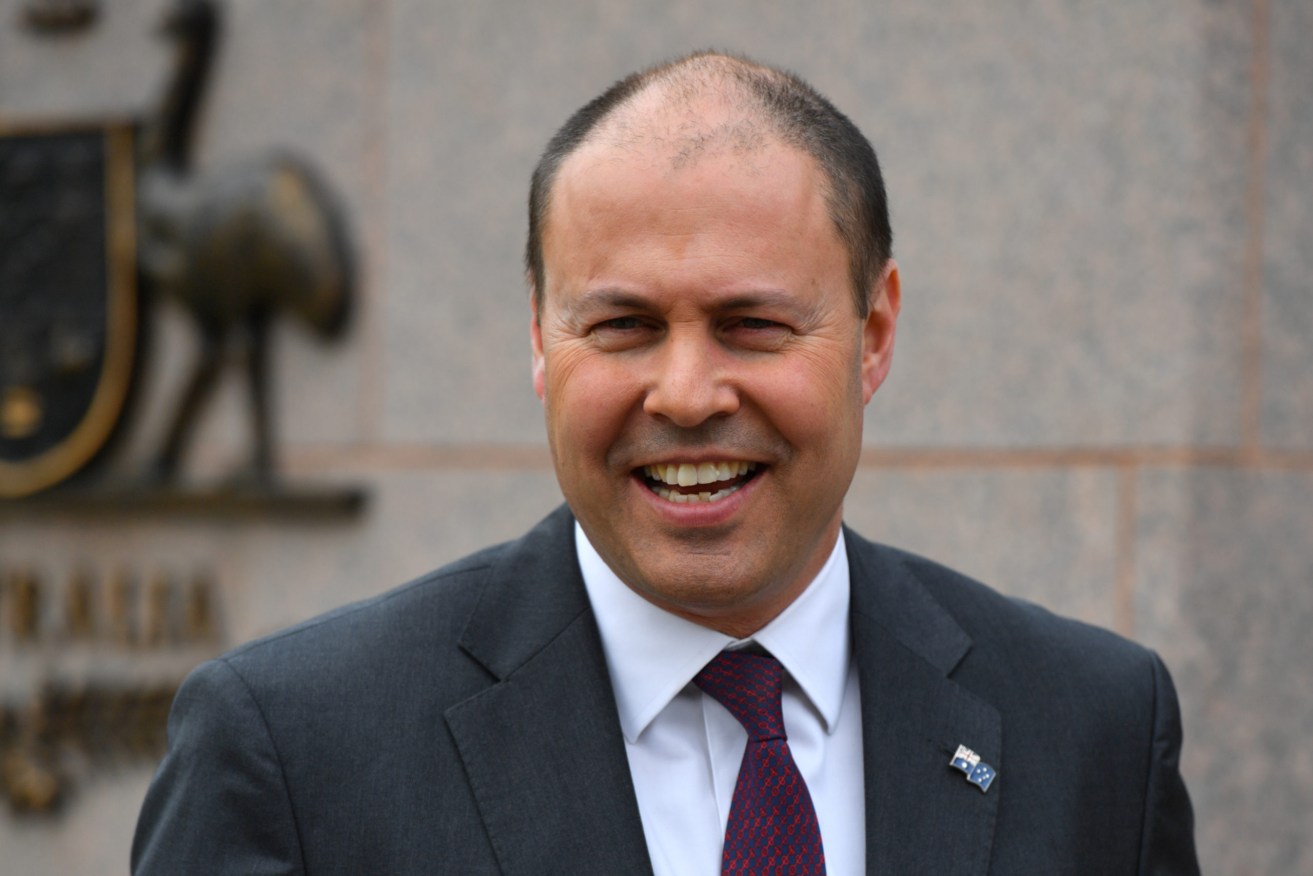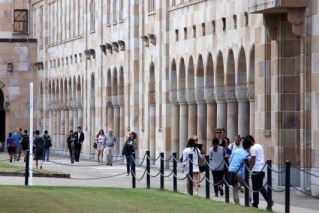Frydenberg hails strong rebound in Aussie economy
Treasurer Josh Frydenberg says the latest national accounts show the enormous resilience of the Australian economy, but warned the floods on the east coast and the Ukrainian conflict will have an impact.

Treasurer Josh Frydenberg. (Photo: AAP Image/Mick Tsikas)
The national accounts showed the economy grew by a hefty 3.4 per cent in the December quarter, a steep recovery from the 1.9 per cent contraction in the September quarter due to the Delta strain lockdowns.
The size of the rebound matched that seen after the 2020 recession, which was the fastest pace for 46 years. Annual growth now stands at 4.2 per cent.
“Despite the uncertainties in the global outlook and the ongoing impacts of the pandemic, the Australian economy is in a very strong position,” Mr Frydenberg told reporters in Canberra.
He said the floods in Australia and the war in the Ukraine are evolving situations but they will have an impact on the economy.
Frydenberg said there will be a very big clean-up and support payments because of the floods in Queensland and NSW, while the tensions in eastern Europe has led to rising global oil prices, resulting in higher petrol prices in Australia.
“But today’s numbers do underline the overall strength of our economy and our ability to withstand these shocks,” the treasurer said.
The Australian Bureau of Statistics said domestic demand drove the growth this December quarter, with high levels of household spending, particularly in the states that emerged from Covid-19 lockdowns.
Household spending in NSW, Victoria and the ACT rose 9.6 per cent, while the rest of Australia rose 1.6 per cent.
“How households react to rising inflation and interest rates will be critical to the role of the consumer as the economic engine,” EY chief economist Jo Masters said.
“A strong labour market and high job security should provide some confidence against some of the other factors on consumers’ minds.”
The rise in household consumption expenditure was partly offset by a 1.4 per cent fall in business investment, which was impacted by shortages of labour and construction materials.
Dwelling investment declined 2.2 per cent despite high levels of building approvals in recent quarters.
Net international trade detracted 0.2 percentage points from growth as exports of mining commodities and travel services fell, which was partly offset by increases in rural goods exports.
Reserve Bank of Australia governor Philip Lowe said the economy has subsequently proved resilient in the face of the Omicron variant, but warned the war in Ukraine is a new major source of uncertainty.
After leaving the cash rate unchanged at a record low 0.1 per cent at Tuesday’s monthly board meeting, Dr Lowe said there were uncertainties about how persistent the pick-up in inflation will be, given recent developments in global energy markets and ongoing supply-side problems.
Economists expect the RBA will lift the cash rate later this year, but the timing of the first move is finely balanced.
The RBA expects the unemployment rate to fall below four per cent by the end of this year, while underlying inflation is projected to move above the two-to-three per cent target band and stay elevated.
Cost of living pressures are already being felt across the country with record petrol prices biting into household budgets.
The latest National Australia Bank wellbeing survey shows one-in-five Australians have missed a bill or loan payment in the past three months, while 75 per cent are trying to save but are challenged by debt repayments, bills and everyday spending.
More than 40 per cent of adults reported a decline in their savings in the past three months.












